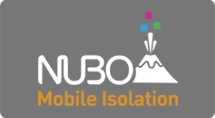As organizations continue to recognize the strategic value of mobile business processes and work towards enabling BYOD, they’re realizing the need to provide end users with secure access to enterprise apps that perform with the same speed and ease-of-use as the consumer apps they already engage with on their smartphones and tablets.
But integrating new mobile-first technologies with legacy systems made to solve yesterday’s challenges is exhaustive and expensive – so much so that legacy system operations and maintenance often account for more than half of enterprise IT budgets. These barriers can often delay and stagnate business growth, expansion, and well, progress!
So how do organizations feasibly move forward in this scenario? Small and medium-sized businesses with limited in-house IT capabilities often turn to Managed Service Providers (MSPs) to remotely manage their infrastructure and end-user systems. Larger organizations in both the private and public sectors consult with System Integrators to create and deploy custom apps and app stores for their mobile enterprise needs. But providing the type of security, that by design incorporates the nature of today’s mobile users and the apps they need to effectively add value, has been a work in progress.
Until now, the best solution available to integrators is one based on a device-centric EMM. This approach requires troubleshooting and diagnostic work in order to integrate customized architecture and apps with the client’s existing systems, hardware and communications infrastructure. This carries significant IT burden and still doesn’t eliminate all of the security and compatibility issues, the very issues that many organizations can no longer afford to deal with.
For example, physicians and other independent contractors working in healthcare often travel from one provider’s facilities to another. They need to connect to different apps provided by different providers – all on their one BYOD device. So what happens when one MDM solution is installed on their device and they then must work with apps provided by another company… which of course is using different security software? An IT headache, that’s what! A device can only be enrolled to one MDM server at a time, which makes it difficult to enforce one company’s security policies while still allowing employees to “BYOD” with others. There’s “only one sheriff allowed in town” as far as MDM security is concerned.
On the other hand, an enterprise mobility solution that can be easily implemented into current business processes and be instantly ready to use would be a boon to both integrators and their enterprise IT clients…
Enter Virtual Mobile Infrastructure (VMI). VMI removes the need to physically track and secure personally-owned devices. IT only has one virtual device that must be updated which runs in the data center. Under a VMI setup, there is no actual application running on the device, just a thin client. The apps are all run on a remote virtual platform, and the data management is not restricted to just one server. Apps can be distributed to multiple servers by simply switching the URL destination. This approach makes it easier for mobile professionals to switch seamlessly between different enterprise apps and platforms without their productivity being hampered by technical problems.
Lighten the load on IT for device management and app deployment
Managing devices has been a burdensome yet necessary headache for enterprise IT departments. They must find a way to keep track of all of the device versions floating around their BYOD network so that they can update them with the latest software and firmware to protect against new vulnerabilities. But the strain on time and resources extends beyond security. When it comes to app deployment, their often seeing double – managing both iOS and Android versions of the same app in order for it work effectively and securely for all of their employees.
VMI gives a completely separate virtual environment in which enterprise IT gains full ownership and control of the data. This allows both public and private sector projects to roll out the most current and robust consumer and business apps to their mobile employees. It also means they no longer have to compromise on user experience and can dip into the vast selection of preferred native mobile apps on the market. And those apps need only be integrated once to be compatible with both iOS and Android devices. Enterprises can deliver business-class native mobile apps to their end users without expending substantial time and resources towards trying to bridge integration and compatibility issues.
A true end-to-end business solution for system integrators
Integrators have been looking constantly for the ability to provide solutions that enable enterprise mobility, increase agility, save time and resources for IT, and provide the security without compromising the end user experience.
VMI enables the deployment of native mobile apps in a completely remote environment. System integrators can use VMI to deliver custom apps and app stores directly to their clients’ end users. In turn, their clients receive a true end-to-end solution that lets them distribute various apps to different teams and users as per their business needs. All of this can be accessed from the cloud, so accessing these tools is possible with almost no implementation time required.
Turning app deployment into a secure “Apps-as-a-Service” gives integrators a valuable solution to their clients. Enterprises can deliver business-class native mobile apps to their end users without expending substantial time and IT resources jostling with integration and compatibility issues.










